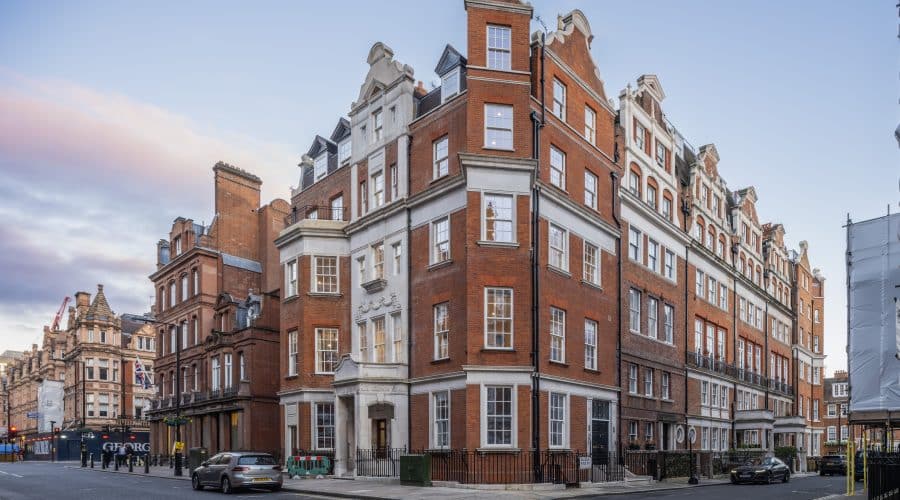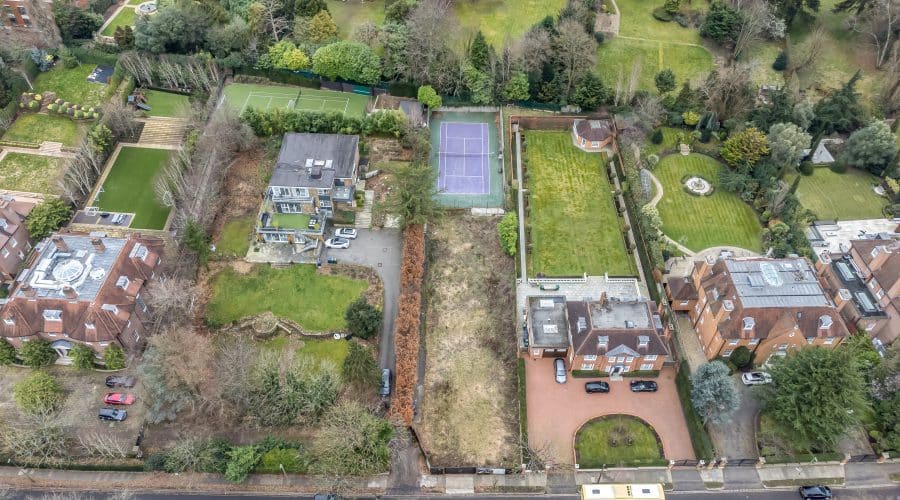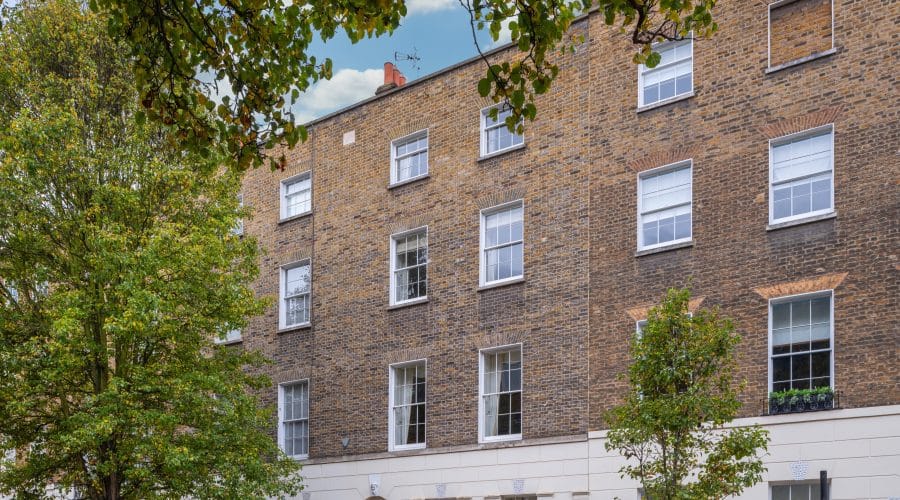By Emanuele Midilo
Whoever wins the election, a stamp duty hike for overseas purchases is due. Plus, how the UK compares with other countries on property taxes
Nothing is certain except death and taxes,” Benjamin Franklin, the US founding father, once said. Labour may be ahead in the polls but the outcome of the general election remains uncertain. One thing is for sure, though: foreign property buyers — including Americans fleeing their own election turmoil — will have to pay more tax regardless of who wins at the ballot here.
Labour leader Keir Starmer has given his team until next week to finalise the party’s draft manifesto and housing is expected to feature prominently, with a particular focus on measures to help first-time buyers while looking to impose more taxes on foreign investors.
To tackle Britain’s affordability crisis, which has made it difficult for the young to buy homes, the party plans to do two things: increase the stamp duty paid by foreign buyers of UK property; and restrict the sale of new-build properties to overseas investors. While the latter pledge is likely to be ineffective, the former could cause some ripples in the property market.
tarmer wants to stop foreigners from buying more than 50 per cent of properties in a new development. Yet foreign buyers account for significantly less than half of all homes purchased every year in London, the region most affected. Last year foreigners snapped up just 24 per cent of homes across Greater London, according to Hamptons.
In prime central London this rose to 45 per cent of all properties purchased — although the figure is still lower than Labour’s threshold and these areas would be too pricey for the average first-time buyer anyway. Aneisha Beveridge, Hamptons’ head of research, says it is “very rare” for the proportion of foreign buyers to exceed 50 per cent even in the most expensive developments.
But Labour’s plan to increase the percentage of stamp duty paid by foreign buyers — who currently pay an additional 2 per cent levy on top of the 3 per cent charged for second homes — is likely to be felt.
“It is time we built the homes our young people need,” Rachel Reeves, the shadow chancellor, told Labour’s conference in Liverpool in October. “We will raise the stamp duty surcharge on overseas buyers to get Britain building.” Although Labour has remained vague about how much the tax will increase, one to two percentage points has been mooted.
When it comes to foreign buyers, the top rate of stamp duty is already 17 per cent. Labour’s plans would bring it closer to 20 per cent, meaning a hike of between £15,000 to £30,000 for a £1.5 million property. “I don’t think Labour will end up doing it,” Camilla Dell, managing partner of the buying agency Black Brick, says.
Dell, who regularly deals with foreign buyers, thinks that a rise of one percentage point would be “tolerated”. She adds: “I don’t think [that] would be too harmful. Some people would think it’s too pricey but in the prime market people can meet the extra costs. It could slow the market, maybe, lead to some softening in prices. Some buyers would say, ‘I’ve got to pay an extra three percentage points, I want 3 per cent off [the asking price].’”
What would be “unacceptable”, Dell argues, would be the introduction of “draconian measures” like those in place in other countries, such as Canada, which has banned foreigners from buying properties until the end of this year. “[That] would kill the market.”
The levelling-up secretary Michael Gove has been lobbying the Treasury to impose a “foreign ownership levy” on second homes in Britain. He has reportedly pushed the chancellor Jeremy Hunt to apply the levy to all foreigners who own more than one home in the UK where it was not their principal residence.
It is unclear how such a levy would be implemented, with Treasury officials expressing reservations about the levy’s effectiveness and how much money it would raise. “It would have to be enough for it to bite,” a Treasury source says. “This is not primarily about raising money but stopping the situation where new flats are being bought up en masse by people who never intend to live in them.”
Whether it’s Labour or the Conservatives who end up rolling out their plans, property taxes in London are already significantly cheaper than international comparator cities, suggesting London will remain attractive to foreign buyers. So what do property taxes look like abroad?
Australia
In December the Australian government announced it will triple fees on purchases of existing homes by foreign buyers and introduce penalties for homes left empty of up to A$169,000 (£88,000). “Higher fees for the purchase of established homes, increased penalties for those that leave properties vacant and strengthened compliance activity will help ensure foreign investment in residential property is in our national interest,” the Australian treasurer Jim Chalmers said. The changes are expected to come into force later this year.
Canada
Foreigners are officially banned from buying properties in Canada, at least until the end of this year. Passed in 2022, the Prohibition on the Purchase of Residential Property by Non-Canadians Act does what it says on the tin: it prohibits non-Canadians from purchasing properties in the country. There are even hefty fines for estate agents “found guilty of knowingly assisting a non-Canadian in contravening the prohibition” and offending buyers may be forced to sell the property. Unofficially, however, there are a number of exemptions — such as for students, first-time buyers and properties under $500,000 (£292,000) — which according to some watered down the measures.
New Zealand
New Zealand was one of the first countries to introduce a “foreign buyers ban” in 2018, to curb the influx of cash-rich investors from Asia. There were workarounds, such as purchasing a commercial property, like a shop, and living above it. Last year, however, the National Party promised that if they won the general election they would allow foreigners to purchase homes worth more than NZ$2 million (£960,000). The National Party won the election in a landslide in October but the plans are yet to be implemented.
Singapore
Buying a property in Singapore as a foreigner was already tricky, as there are a number of restrictions in place. Last year, however, the island country doubled stamp duty tax on purchases by foreign buyers, from 30 per cent to 60 per cent. Foreign permanent residents will pay a tax of just 5 per cent — they will, however, be taxed at 30 per cent (up from 25 per cent) if they buy a second home. Companies and trusts must pay 65 per cent (up from 35 per cent) on purchases of residential property.
Hong Kong
Foreigners wanting to snap up a property in Hong Kong also face high taxes. The city recently imposed an extra 15 per cent “buyer’s stamp duty” on purchases of residential properties by foreigners — foreign buyers, including those from mainland China, already pay 15 per cent stamp duty when buying a home. Permanent residents, meanwhile, pay just 4.25 per cent.
Spain
Early last year the regional Socialist Party of Spain’s Balearic islands announced plans to introduce a foreign buyers ban. Local officials claimed that soaring prices in Mallorca, Menorca and Ibiza were driving local people out and creating “ghost villages” of empty properties. But in May the Socialists lost the election to the centre-right Partido Popular and the plans have been scrapped.














